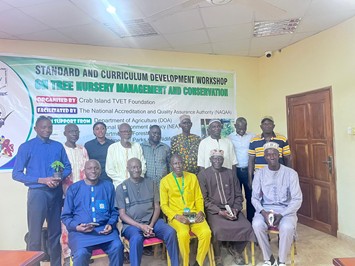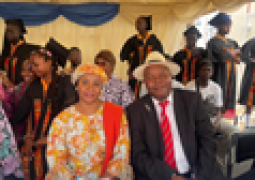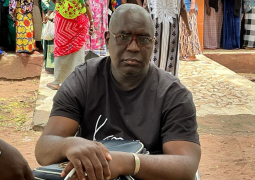
The programme will commence with 25 trainees enrolled in a Level 4 certificate course, focusing on nursery establishment, biodiversity conservation, forestry practices, and climate change adaptation. According to organisers, the course is designed not only to prepare youth for gainful employment but also to empower communities to manage their own nurseries, reducing reliance on private operators.
Speaking at the opening ceremony, Ousman Sillah, Chairperson of the Crab Island TVET Foundation, reiterated the programme’s dual purpose: “This course aims to prepare young people for employment while enabling communities to take ownership of their environmental future.”
Dr Dawda Badjie, Executive Director of the National Environment Agency (NEA), underscored the urgency of the initiative, citing rising deforestation, land degradation, and biodiversity loss. “No tree, no life. If we fail to take care of the environment, it will take care of us in ways we may not like. This curriculum gives us a glimpse of hope for the generations to come,” he said.
Mustapha Drammeh, Deputy Director General of Agriculture, highlighted the economic and ecological importance of nurseries. “They are vital for food security, reforestation, and income generation. Proper training will ensure sustainable practices in seedling production, site selection, and nursery management,” he declared.
NAQAA Chief Executive Muhammed Tarro praised Crab Island’s foresight in introducing a skills area that aligns with national priorities. “The development of standards and curriculum in tree management and conservation is both timely and necessary. It reflects the kind of innovation and commitment we need from training providers,” he stated.
The Foundation has already secured support from international partners, including Crossing Borders and Windex Schutz und Asyl, to fund the training programme. With centres in Banjul and the West Coast Region, Crab Island TVET Foundation has long championed vocational education as a pathway to youth empowerment and community development.
At the end of the workshop, stakeholders are expected to validate a comprehensive national standard and curriculum that will guide institutions across the country. The move is seen as a critical step in aligning skills training with The Gambia’s environmental and socio-economic development goals.
As one participant aptly put it: “This curriculum is not just about trees. It is about livelihoods, climate resilience, and the future of our nation.”
Read Other Articles In National News





